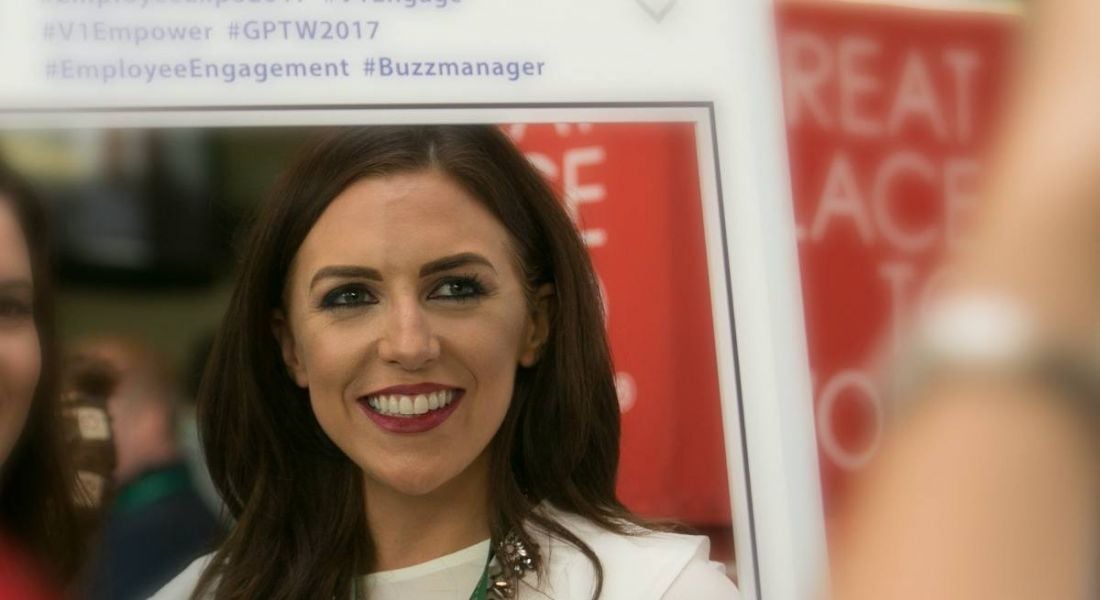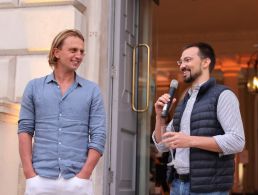Have you ever started going down one career path, only to dramatically pivot to something completely different?
Deciding what you want to do for the rest of your life can be really difficult, especially when you’re in school trying to decide what to study at third level.
In fact, there are plenty of adults who are halfway through one career before they realise where their true passion lies.
A 2015 survey from the University of Phoenix in Arizona showed that approximately 60pc of all working adults in the US want a new career, but nearly 40pc of these adults are unsure what to pursue.
Nowadays, changing jobs and careers has become even more socially acceptable and therefore, more common.
If you feel like you made the wrong choices heading into college, it doesn’t mean you have to live with them forever. There are plenty of ways to pivot and experience more than one career change before you settle down.
Susan O’Beirne is just one example of a career change success story. With no idea what to pursue in college, she gravitated towards the subjects she studied for the Leaving Certificate.
Doing what you love
Having studied chemistry and physics in school, she opted for a common entry science degree at NUI Galway. “[I] loved the place but hated the content of what I was learning so I decided to drop out.”
After a few months in limbo, O’Beirne said her supportive parents encouraged her to pursue what she really loved, which was music. “I had started playing piano when I was five but was afraid to ruin my love of it by pursuing it as a career. I bit the bullet and auditioned for the bachelor of music degree at NUI Maynooth,” she said.
After her undergraduate degree, O’Beirne completed a master’s degree in musicology, which she described as analysis of classical music. However, she then needed to figure out her next move.
“I didn’t want to teach in a secondary school, couldn’t afford to pay for a PhD and wasn’t good enough to be a concert pianist, so I taught in private music schools for two years and spent a couple of days working with disadvantaged children in the social services centre back home,” she said.
Financially viable
After a year of teaching piano in music schools, she realised it wasn’t going to be financially viable in the long term. “I had to get a second job during the summer months when the schools closed and was constantly just scraping by.”
Looking for other options, O’Beirne researched ICT conversion courses. She said some of her friends had completed ICT courses and landed jobs straight after graduating. “I applied to a number of different courses in different colleges and was accepted by Dublin Business School (DBS) for their three ICT streams.”
After being accepted, O’Beirne requested more information from DBS about each of the three streams. After hearing about them in more detail, it was still hard for her to know which one she would enjoy the most.
“I asked admissions what is the best stream to pursue career-wise. They said that each stream would be good but the one that people found most difficult was software development. I said I’d try that one,” she said.
O’Beirne said she started enjoying it within the first month. “I liked seeing how everything was connected in the code and seeing the different ways you could pull data from a database and manipulate it to give the user what they needed.”
Making the career change
It’s easy to see how some people would be best suited for a tech career, while others might prefer a more creative vocation. O’Beirne said that while she has a passion for both music and software development, she found the career change difficult at first.
“I had to switch from using a free, creative, arts mind set to a logical, ‘right or wrong’, software development mindset. I could spend up to 13 hours a day in college while I did the conversion course learning C# code but I kept telling myself I would get a job out of it.”
O’Beirne graduated with first class honours and secured a place on the Version 1 graduate programme. “They trained us for six weeks in a bootcamp, which was really helpful in the transition from college/teaching to IT work life.”
‘I kept telling myself I would get a job out of it’
– SUSAN O’BEIRNE
For anyone making a career change, especially a dramatically different one, it’s important to identify the skills you’ve learned in previous jobs and education that can be applied to your new career, even if they don’t seem obvious at first.
For O’Beirne, this was self-discipline and analytical skills. “When I studied performance in college, we had to exercise a lot of self-discipline where practising was concerned. I think this helped me to practise coding in college,” she said.
“When I did my thesis for the master’s in musicology, I had to analyse scores of music, looking for similarities and differences in pitch, rhythm and timbre, and I think that sort of analytical mindset is very similar to the one I use today when I’m debugging code and trying to solve errors.”
O’Beirne graduated from DBS in 2016 and was placed on Version 1’s graduate programme a month later. She now works remotely for a .NET team based in Kent and was just recently made permanent. “I’m still learning loads. I’m really lucky to have such a patient team in a really great company,” she said.
“Like every job, there are bad days (when you’re blocked by a piece of code for hours) and good days (when you solve what’s blocking you). It’s kind of like doing puzzles all day! I went to Dublin Tech Summit last week and had a moment when I just realised how much my life had changed in just a year.”
Looking for jobs in tech or science? Check out our Employer Profiles for information on companies hiring right now and sign up for our Career Republic e-zine for a weekly digest of sci-tech careers news and advice.




